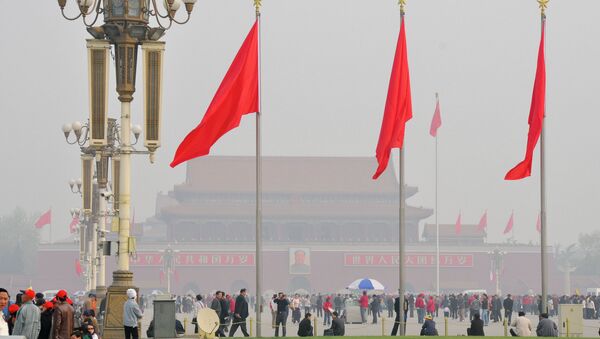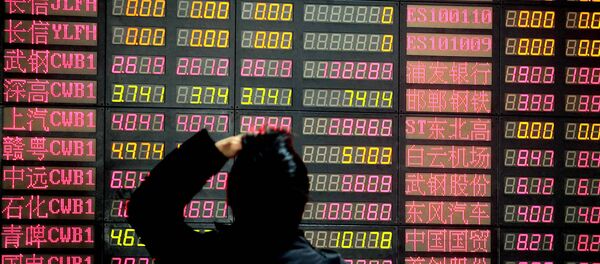MOSCOW (Sputnik) — The current slowdown of China's economic growth will have a negative effect on a number of sectors of the Russian economy, including the metallurgy, agricultural fertilizers and timber industries, a leading expert at the Moscow-based Center for Macroeconomic Analysis and Short-term Forecasting told Sputnik Thursday.
Speaking at the opening session of the National People's Congress (NPC) on Thursday the Premier of the State Council of China, Li Keqiang said that in 2015 China will target growth of around 7 percent of its GDP – as opposed to 7.4 percent in 2014. This is China’s lowest growth in more than quarter of a century. Li Keqiang also stated that this year consumer prices in China will increase by 3 percent. Last year’s inflation in the country stood at 2 percent.
"Our [Russian] metallurgy enterprises and our fertilizer suppliers depend significantly on clients from China. Russia will experience certain difficulties caused by the decrease in demand from China," the Head of the Global Research unit, Alexander Apokin, said.
Asia macro strategist at Saxo Bank, Kay Van-Petersen, however, believes that a relative slowdown in China poses significant opportunities for economic growth in Russia.
"Whilst near term a slower China is negative to the global economy & hence Russia, in the medium to long term it's a great thing. I.e. A more efficient and developed domestic Chinese market will in the long-run only fuel world & Russian economic growth," Van-Petersen told Sputnik.
He added that the Russian companies that are looking to benefit from working with China should focus less on the traditional energy sphere and more on the middle class and high end segments of the Chinese consumer market.
"Most countries would give their left hand for half of that growth… China growth next year will be bigger than the GDPs of countries such as: Sweden, Argentina, Nigeria, Norway… It will basically grow the equivalent of half of Australia or Spain," the expert said.
Russian business rights ombudsman Boris Titov noted the importance of another statement made by Li Keqiang Thursday. During his address to the NPC, Li promised to halve the number of industries in which foreign investment is restricted and to encourage Chinese businesses to invest abroad.
Titov, who is also the Chairman of the Russian chapter of the Russian-Chinese Business Council believes such tendencies are very promising for investors from Russia.
The ombudsman said that aside from Russia’s traditional projects in the energy sphere and metallurgy "there is a good outlook for joint Russian-Chinese projects in pharmaceuticals, food production, ecology and construction – and not just for large businesses but also for small and medium-sized companies."
Russia is China's ninth-largest trading partner. Trade between the two countries increased by almost 7 percent in 2014, year-on-year, reaching $95.3 billion, according to the Chinese customs department.
Mid-February, Chinese Vice Foreign Minister Cheng Guoping said that Beijing aims to raise its trade cooperation with Russia to a new level.


